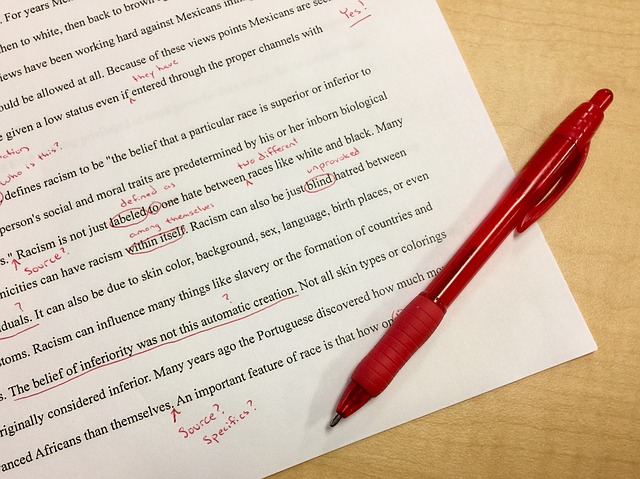
At ProWritingAid, we believe in the power of algorithms, machine learning, and technology to help you self-edit faster, better, and learn as you go. An editing tool is a writer’s best friend. But there comes a time in every writer’s life when you shouldn’t rely on your tool. You need to go old school and self-edit manually.
Gasp! Yes, we went there. Nothing works as well as old school techniques to help you get right to the core and catch the imperfections a machine can’t.
Here are the perils of relying too much on your editing tool.
You never print your manuscript
When you rely on an editing tool to catch everything, you don’t print your manuscript out. Seeing your work in a different format other than on the screen can help you view it differently. Approaching the physical page, you can pretend it’s not your work and read it with fresh eyes and a red pen.
You also get an overall view of your manuscript’s structure when you print it out. Do you have dense paragraphs full of text? Cut down some of the longest ones. It’s better to keep things easy to read.
You don’t read your work out loud
You never know if your writing is smooth if you don’t read it out loud. When something makes little sense, you’ll stumble over it as you read aloud. Reading your work out loud helps you find constrained wording that doesn’t flow off the tongue. You want nothing in your manuscript or content to stop your reader in their tracks while they try to figure out your meaning.
You get a false sense of security
Using an editing tool gives you a false sense that your manuscript is perfect. When you think you’ve completed a comprehensive review after running your editing tool, you don’t take the time to put your manuscript aside and get some distance from it. You might even send it off to an agent or a publisher without getting a second, third, or fourth pair of eyes on it.
You don’t take the time to read it as a reader
Do you read your manuscript from the eyes of a reader? If you don’t, you probably should. This goes along with several points previously made about getting distance from your work and looking at it with fresh eyes. Reading like a reader helps you find the gaping plot holes and mischaracterizations in your manuscript.
Sometimes it’s hard to get the right perspective. This is when beta readers are more helpful than an editing tool.
You rely on false positives
What is a false positive, you ask? It’s when your editing tool reports an error and suggests a correction that’s not actually correct. For example, when you reference "your writing" as a noun, an editing tool might think you should’ve written "you’re writing" because it sees "writing" as a verb.
Other false positives can crop up. It’s best to weigh an editing tool’s suggestions rather than unconsciously accepting every one.
You skip using a human editor
Hopefully by now, you know how we at ProWritingAid feel about editors. They’re essential to every manuscript. You never want to skip a human editor’s eyes on your manuscript before sending it off to an agent or a publisher. It will increase the likelihood of rejection.
In a similar vein, you never want to send a manuscript to your editor you haven’t run through an editing tool and manually self-edited ruthlessly.
Final thoughts
There’s more to editing than running your writing through an editing tool. While an editing tool makes self-editing easier, it doesn’t release you from responsibility. It's up to you to make sure every word used is correct, every sentence makes sense, and your manuscript flows easily off the tongue.
Google "self-editing techniques" or go to ProWritingAid’s blog and search for "self-edit" for a list of ways you can better self-edit your manuscript. Just don’t forget to use each tool and technique responsibly.

